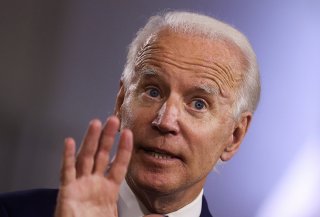The End of Extra Unemployment: Why States are Scaling Back Assistance
One of the most popular – and controversial – government assistance programs during the pandemic has been the payment of federal unemployment insurance.
Here's What You Need to Remember: The Century Foundation has estimated that four million workers nationwide would be affected by the benefit cuts, losing a total of $22 billion. Of those, the foundation concluded that sixty percent would be left with no benefits, aside from other general government measures such as the Child Tax Credit.
One of the most popular – and controversial – government assistance programs during the pandemic has been the payment of federal unemployment insurance. These payments of up to $300 per week are made to Americans searching for work, and could theoretically amount to more than $15,000 per year.
Fiscal conservatives have decried the enormous price tag of federal unemployment aid. They have also criticized it on the basis that it de-incentivizes work, although the negative effect of unemployment benefits on employment rates has been dismissed as minimal in a study by the Federal Reserve Bank of San Francisco.
In all states, the Biden administration has scheduled federal unemployment benefits to end on September 6, by which point all of the state lockdowns should have been lifted. However, twenty-five states so far have voluntarily ended their participation in the program early. (Each of these states has an undivided Republican government; all Democratic states, as well as states with Democratic legislatures and Republican governors or vice versa, have kept the benefits intact.) Four of these states have rolled their unemployment checks over into hiring bonuses, paid out once unemployed workers find jobs; however, the rest have simply ended the payments, understandably angering many residents.
In Indiana, one of the states which have ended their participation early with no alternative payment scheme, the state government has been sued. Indiana Legal Services and Macey Swanson Hicks and Sauer, two Indiana law firms, have argued that ending the benefits early would “cause irreparable harm to individual clients.”
The lawsuit is based on an Indiana law, 22-4-37-1, which obliges the state government to “procure all available federal insurance benefits to citizens.”
As things stand, though, the government is scheduled to cut off federal benefits on Saturday, June 19, costing the state $1.3 billion in federal funds. The cessation of the benefits would impact 236,000 Indianans who were receiving them. Cut programs would include the extra $300 per week in benefits, as well as the Pandemic Emergency Unemployment Compensation (PEUC) program.
However, it appears likely that with the lawsuit in place, a judge will put an injunction in place against the state, obliging it to continue the payments until the case is settled. Since such a case is likely to last until after September, it may be that the benefits remain intact.
Other states have not been so fortunate; the Century Foundation has estimated that four million workers nationwide would be affected by the benefit cuts, losing a total of $22 billion. Of those, the foundation concluded that sixty percent would be left with no benefits, aside from other general government measures such as the Child Tax Credit.
Trevor Filseth is a current and foreign affairs writer for the National Interest. This article first appeared earlier this year.
Image: Reuters.

